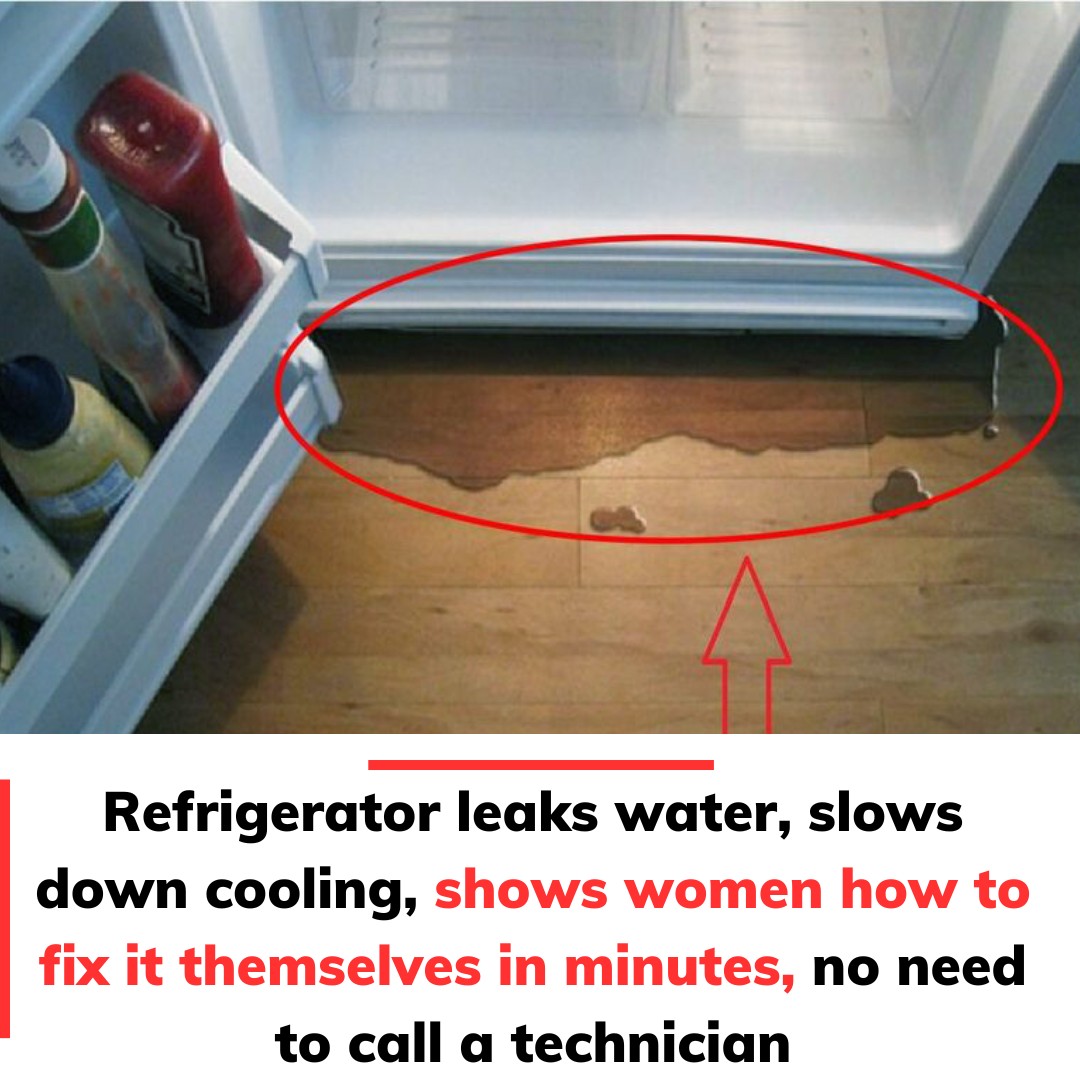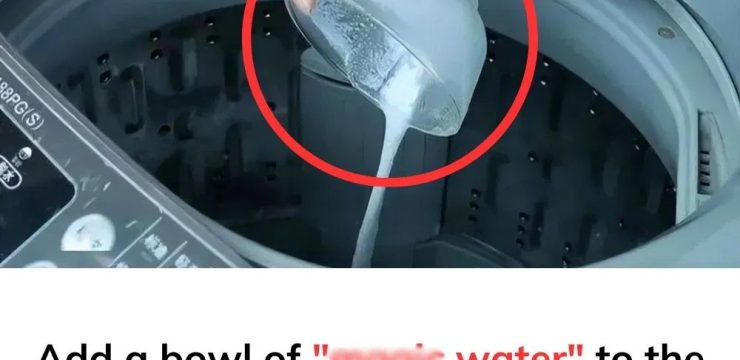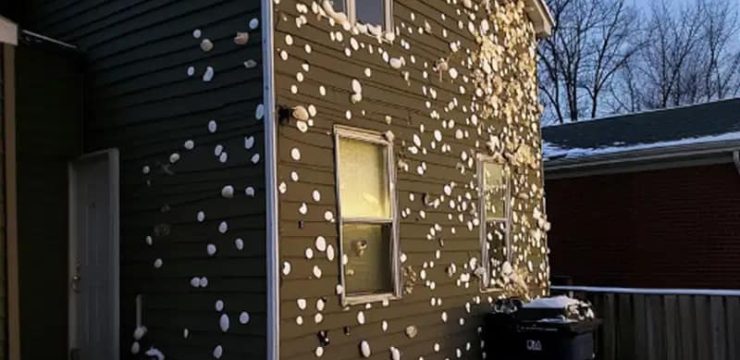Refrigerators are essential appliances in every household, working tirelessly to keep food fresh, safe, and edible for extended periods. However, because they run continuously and depend on electrical power, occasional problems are inevitable. Two of the most common issues homeowners encounter are water leaks and slow cooling. Both problems not only affect the efficiency of the appliance but can also lead to food spoilage, increased electricity bills, and expensive repairs if left unresolved. Fortunately, many of these issues stem from simple causes and can often be addressed at home without professional intervention.

Before you pick up the phone to call a technician, it’s worth taking a moment to troubleshoot and address the common causes behind these problems. With a few easy adjustments, you might be able to fix the issue yourself, saving both time and money. Below, we’ll break down the most frequent causes of water leaks and slow cooling, along with actionable solutions to get your refrigerator back in optimal working condition.
1. Water Leaking from the Refrigerator Compartment
One of the most frequent reasons for water leaks in the refrigerator compartment is overcrowding. Many families tend to fill their refrigerators to maximum capacity, believing it will reduce shopping trips and improve efficiency. However, tightly packed food can block air vents, restricting airflow and causing uneven cooling. Additionally, placing freshly washed fruits, vegetables, or meats in the refrigerator without properly drying them can result in excess moisture, which may accumulate and leak onto the refrigerator shelves.
Quick Fix:
Always drain excess water from fruits, vegetables, and meats after washing. Pat them dry with paper towels or wrap them securely in plastic wrap or ziplock bags to control moisture. Avoid overloading your refrigerator and ensure that air vents remain unblocked. Organize food in a way that allows air to circulate freely around each item. By keeping your refrigerator neat and moisture-free, you can prevent water leaks and ensure consistent cooling performance.
2. Water Leaking from the Freezer Compartment
Water leaks in the freezer are often caused by two primary factors: blocked air vents and damaged door gaskets. Similar to the refrigerator compartment, an overcrowded freezer can obstruct airflow, causing uneven temperatures and ice buildup. When the ice eventually melts, water begins to pool and leak. Additionally, if the freezer door gasket (the rubber seal) is cracked, loose, or worn out, warm air can seep inside, causing ice to melt and resulting in water leaks.
Quick Fix:
Start by checking if the freezer door is sealing properly. Inspect the gasket for any cracks, looseness, or damage. If it’s worn out, replace it immediately to ensure a tight seal. Next, organize your frozen items, making sure not to block the air vents. Avoid stuffing the freezer with excessive food, as this restricts airflow and contributes to ice buildup. These small adjustments can significantly reduce the chances of water leaks in your freezer.
3. Water Leaking onto the Floor from the Drain Pan
If you notice water pooling on the floor beneath your refrigerator, the issue might not originate inside the fridge but rather from the drain pan located at the base or rear of the appliance. The drain pan is designed to collect condensation from the refrigerator and freezer, allowing it to evaporate naturally. However, if the pan becomes cracked, damaged, or misaligned, it can cause water to spill onto your kitchen floor. A loose or damaged water supply line can also lead to leaks.
Quick Fix:
First, unplug your refrigerator to ensure safety before inspecting the drain pan. Carefully remove the tray and check for cracks, damage, or improper alignment. If it’s damaged, replace it with a new one. Additionally, inspect the water supply line for signs of looseness, clogs, or visible breaks. Replace any faulty parts as needed. If the problem persists despite these checks, it may be time to seek professional help.
Preventive Maintenance Tips for a Trouble-Free Refrigerator
Preventing refrigerator leaks and cooling issues starts with routine maintenance. Consistent care ensures that your appliance runs efficiently, avoids unnecessary energy consumption, and lasts longer. Here are some simple yet effective maintenance tips:
- Clean Regularly: Remove expired or spoiled food and wipe down the shelves and compartments with a clean, damp cloth.
- Inspect Door Seals: Check door gaskets periodically for cracks, dirt, or wear. Replace damaged seals to maintain a proper seal and prevent warm air from entering.
- Avoid Overloading: Don’t overcrowd either the refrigerator or freezer compartments. Leave enough space for proper airflow to maintain consistent temperatures.
- Keep Vents Clear: Make sure air vents remain unobstructed to allow cold air to circulate freely in both the fridge and freezer compartments.
- Check the Drain Pan Periodically: Inspect the drain pan and water supply line regularly to ensure they are in good condition.
By incorporating these habits into your routine, you’ll not only prevent common refrigerator problems but also improve energy efficiency and prolong your appliance’s lifespan.
When to Call a Professional Technician
While many refrigerator problems can be resolved at home with basic troubleshooting, some require professional expertise. If you’ve tried the above solutions and still notice persistent water leaks, inconsistent cooling, or unusual noises, it’s time to call a qualified technician. Professionals have the tools and experience to diagnose complex problems, repair damaged components, and restore your refrigerator to peak performance.
Final Thoughts
Water leaks and slow cooling are two of the most common refrigerator issues, but they are often caused by simple factors like blocked vents, poor food organization, or faulty door gaskets. By identifying and addressing these problems early on, you can save money on repairs, reduce energy waste, and ensure your refrigerator runs efficiently for years to come.
The key takeaway? A little preventive care goes a long way. Regular maintenance and mindful usage habits are your best tools for keeping your refrigerator in top condition. Don’t wait for small problems to become major repairs—address them early and keep your refrigerator functioning smoothly, keeping your food fresh and your kitchen stress-free.





